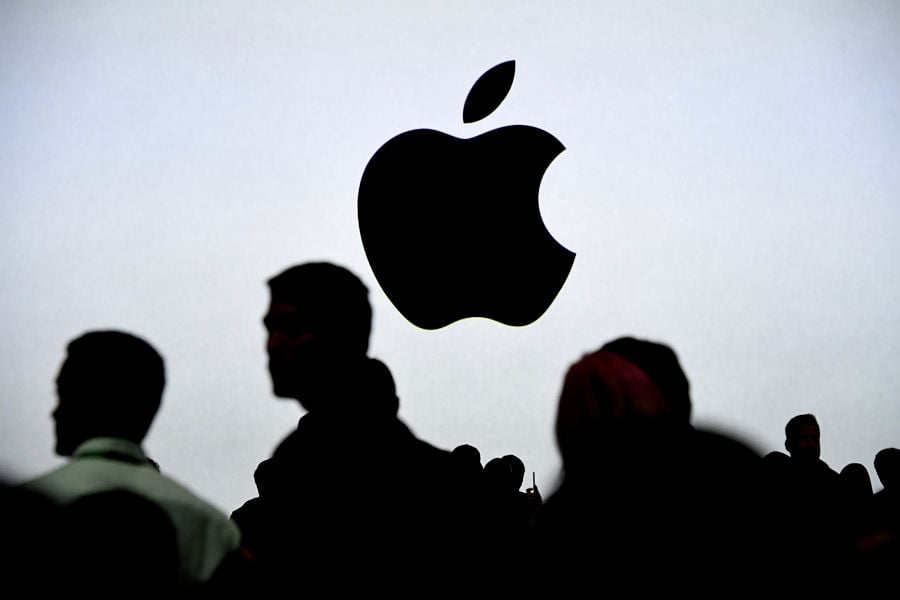

 It's just budgeting for now, but the design is similar to what's offered at consumer-facing robo-advisers, and far better than what most traditional advisory firms can provide. It really doesn't take the imagination of a Steve Jobs to picture Apple extending this interface to offer loans, CDs or high-yield savings accounts.
It just so happens their new credit card partner offers those products in the form of Marcus.
After that, Apple simply needs to partner with asset managers for access to low-cost index funds and insurance, and build out some investment advice and financial planning algorithms. With Apple providing the technology, asset managers get a distribution platform that's already in the hands of millions of loyal customers.
Apple isn't the only technology giant developing this. Microsoft is working with BlackRock to build some type of new retirement platform.
(More: BlackRock pivoting to technology could serve as blueprint for other asset managers)
Tech allows asset managers to cut out the middle man and put products directly in front of customers. While at first these technology companies will be looking squarely at the mass market rather than the high-net-worth investors most advisers serve, they could eventually become a major threat.
Whenever technology companies make forays into financial services, defensive advisers retort that financial services is a highly complex and regulated industry. Why would Apple, Amazon, Google or anyone else to get involved?
The answer, as always, is money. Apple's share of the phone market declined from 18% in Q4 2017 to 16% in Q4 2018, said Ted Rossman, an analyst with CreditCards.com.
"I definitely see why Apple is doing this: They want to juice Apple Pay usage," Mr. Rossman said, adding that only 32 million people use Apple Pay compared to PayPal/Venmo's user base of 267 million.
"Plus, as a merchant, they'll save on interchange fees when Apple Card users buy something from Apple," he said. "And as a service provider, they'll get a cut of Apple Card transactions elsewhere."
To stymie revenue losses, Apple CEO Tim Cook laid out a plan in February to shift the company's focus to services, including subscription entertainment, artificial intelligence, smart homes, self-driving cars and health care. Financial services would be just another feather in the company's cap, one that would help ensure Apple devices remain valuable items.
It's just budgeting for now, but the design is similar to what's offered at consumer-facing robo-advisers, and far better than what most traditional advisory firms can provide. It really doesn't take the imagination of a Steve Jobs to picture Apple extending this interface to offer loans, CDs or high-yield savings accounts.
It just so happens their new credit card partner offers those products in the form of Marcus.
After that, Apple simply needs to partner with asset managers for access to low-cost index funds and insurance, and build out some investment advice and financial planning algorithms. With Apple providing the technology, asset managers get a distribution platform that's already in the hands of millions of loyal customers.
Apple isn't the only technology giant developing this. Microsoft is working with BlackRock to build some type of new retirement platform.
(More: BlackRock pivoting to technology could serve as blueprint for other asset managers)
Tech allows asset managers to cut out the middle man and put products directly in front of customers. While at first these technology companies will be looking squarely at the mass market rather than the high-net-worth investors most advisers serve, they could eventually become a major threat.
Whenever technology companies make forays into financial services, defensive advisers retort that financial services is a highly complex and regulated industry. Why would Apple, Amazon, Google or anyone else to get involved?
The answer, as always, is money. Apple's share of the phone market declined from 18% in Q4 2017 to 16% in Q4 2018, said Ted Rossman, an analyst with CreditCards.com.
"I definitely see why Apple is doing this: They want to juice Apple Pay usage," Mr. Rossman said, adding that only 32 million people use Apple Pay compared to PayPal/Venmo's user base of 267 million.
"Plus, as a merchant, they'll save on interchange fees when Apple Card users buy something from Apple," he said. "And as a service provider, they'll get a cut of Apple Card transactions elsewhere."
To stymie revenue losses, Apple CEO Tim Cook laid out a plan in February to shift the company's focus to services, including subscription entertainment, artificial intelligence, smart homes, self-driving cars and health care. Financial services would be just another feather in the company's cap, one that would help ensure Apple devices remain valuable items.

Former Northwestern Mutual advisors join firm for independence.

Executives from LPL Financial, Cresset Partners hired for key roles.

Geopolitical tension has been managed well by the markets.

December cut is still a possiblity.

Canada, China among nations to react to president-elect's comments.
Streamline your outreach with Aidentified's AI-driven solutions
This season’s market volatility: Positioning for rate relief, income growth and the AI rebound
